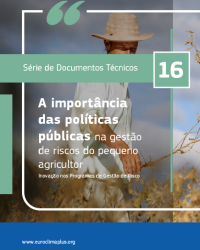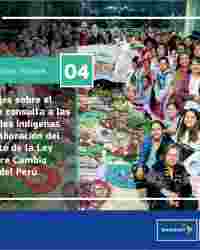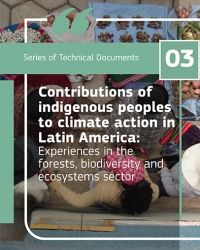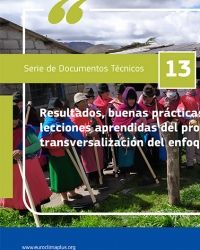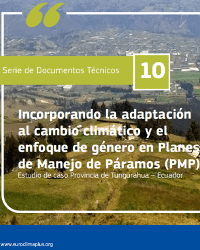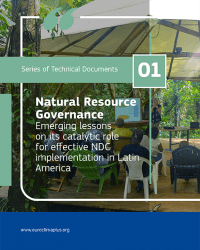Búsqueda por categoría
Más descargados
| Guía Cambio Climático y agricultura familiar con lentes de género 10827 Descargas | 2.49 MB | |
| Informe anual 2021-2022 6637 Descargas | 4.62 MB | |
| Transversalizando la perspectiva de género en proyectos de acción climática: caja de herramientas 3533 Descargas | 6.6 MB |
Climate Vulnerability and Risks in the Agriculture Sector of Latin America
1512 Descargas
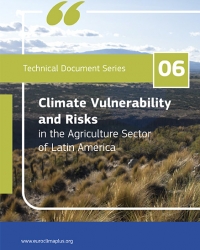 The technical document “Climate Vulnerability and Risks in the Agriculture Sector of Latin America” is part of the series of publications based on the webinars and round table discussions organized by the EUROCLIMA+ programme in the Resilient Food Production (RFP) sector .
The technical document “Climate Vulnerability and Risks in the Agriculture Sector of Latin America” is part of the series of publications based on the webinars and round table discussions organized by the EUROCLIMA+ programme in the Resilient Food Production (RFP) sector .
The publication defines the theoretical concepts of climate vulnerability and risk and provides case studies and lessons learned in climate measurement and in establishing vulnerability baselines of different family farming systems, which were shared by key actors in projects co-financed by EUROCLIMA+ in Argentina, Colombia, Honduras and Ecuador and by various regional institutions.
| Categoría: | Serie Documentos técnicos |
| Tamaño del archivo: | 2.06 MB |
| Hits: | 11684 Hits |
| Descargas: | 1512 veces |
| Título: | Climate Vulnerability and Risks in the Agriculture Sector of Latin America |
| Autor: | Andrea Schloenvoigt |
| Año: | 2022 |
| Catálogo: | MN-BK-21-005-EN-N |
| Formato: |

